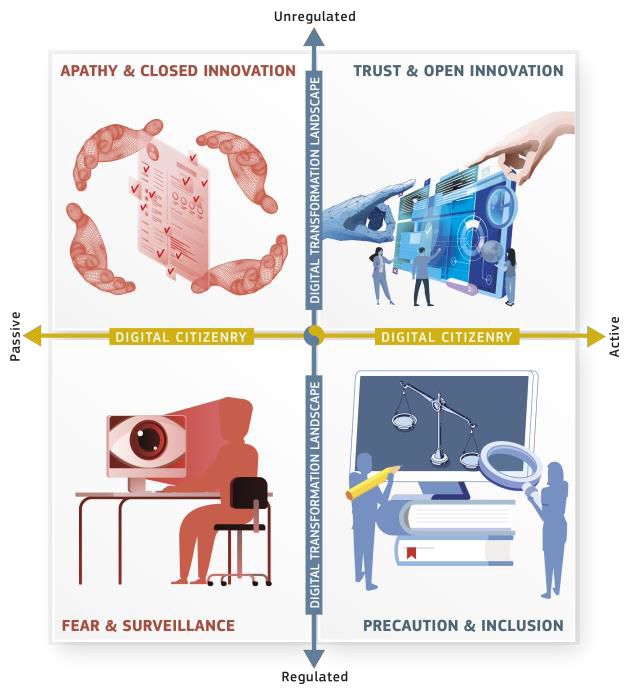
The policy brief, "Digital Government Transformation in the EU", summarises the JRC research on ‘Exploring Digital Government Transformation in the EU: understanding public sector innovation in a data-driven society', in short DigiGov.
DigiGov was designed to contribute to shedding light on how Information and Communications Technology (ICT) enabled innovation in the public sector can transform systems of governance and support policy makers in better addressing systemic and unexpected challenges.
The key findings of the research are
- Policy makers are faced with the urgency of embracing the complex and demanding task of ‘reinventing governance in the digital age’, at a crucial moment for the future of Europe and its role in the global policy debate.
- The future of Digital Government Transformation will depend on the capacity of governments to effectively ‘steer’ the digital transformation process, and the extent to which citizens will be actively in charge of their digital lives, with specific regard to their rights as data subjects.
- The Covid-19 emergency revealed the unpreparedness of our society to deal with unexpected challenges, but also raised hopes of exploiting the opportunities that emerged to achieve a real Digital Government Transformation.
Scenarios for Digital Government Transformation 2040
The scenarios developed and presented in the recent JRC Science for Policy report, ' [node:186946:link]{Exploring Digital Government Transformation in the EU - Understanding public sector innovation [...] en society as Link}' and highlighted in the
resonate well with the current debate on policy and regulatory governance interventions to safeguard data protection and empower a truly digital citizenry, respecting fundamental rights at the global level and, at the same time, promoting European ecosystems for digital innovation. However, none of the scenarios outlined can be expected to occur exactly as they are described; rather a mixture of elements from each scenario will shape the future society in which we will live. But these will depend on the policy decisions taken today, and will reflect the current cultural and governance value systems.
Background and scope
The study Exploring Digital Government Transformation: understanding public sector innovation in a data-driven society, also known as DigiGov, was conceived in line with the orientations of the JRC2030 strategy and the Work Programme of the ELISE Action of the ISA2 Programme of the European Commission's Directorate General DIGIT, to contribute to provide evidence and indications on how to shape the future research agenda and policy development in the field of Digital Government and public sector innovation in the EU.
The aim of the research is to better understand how innovation in the public sector, enabled by digital technologies, can transform governance systems, especially in terms of new approaches to use geospatial/location data for policy design and service delivery, so that governments can better address systemic problems.
Related Content
[node:186946:link]{Exploring Digital Government Transformation in the EU - Understanding public sector innovation [...] en society as Link}
Details
- Publication date
- 28 October 2020
